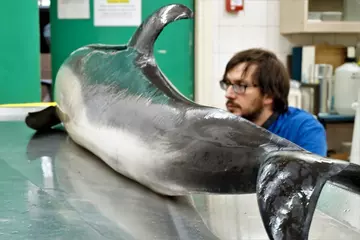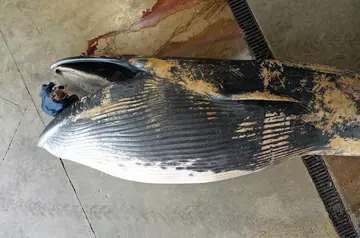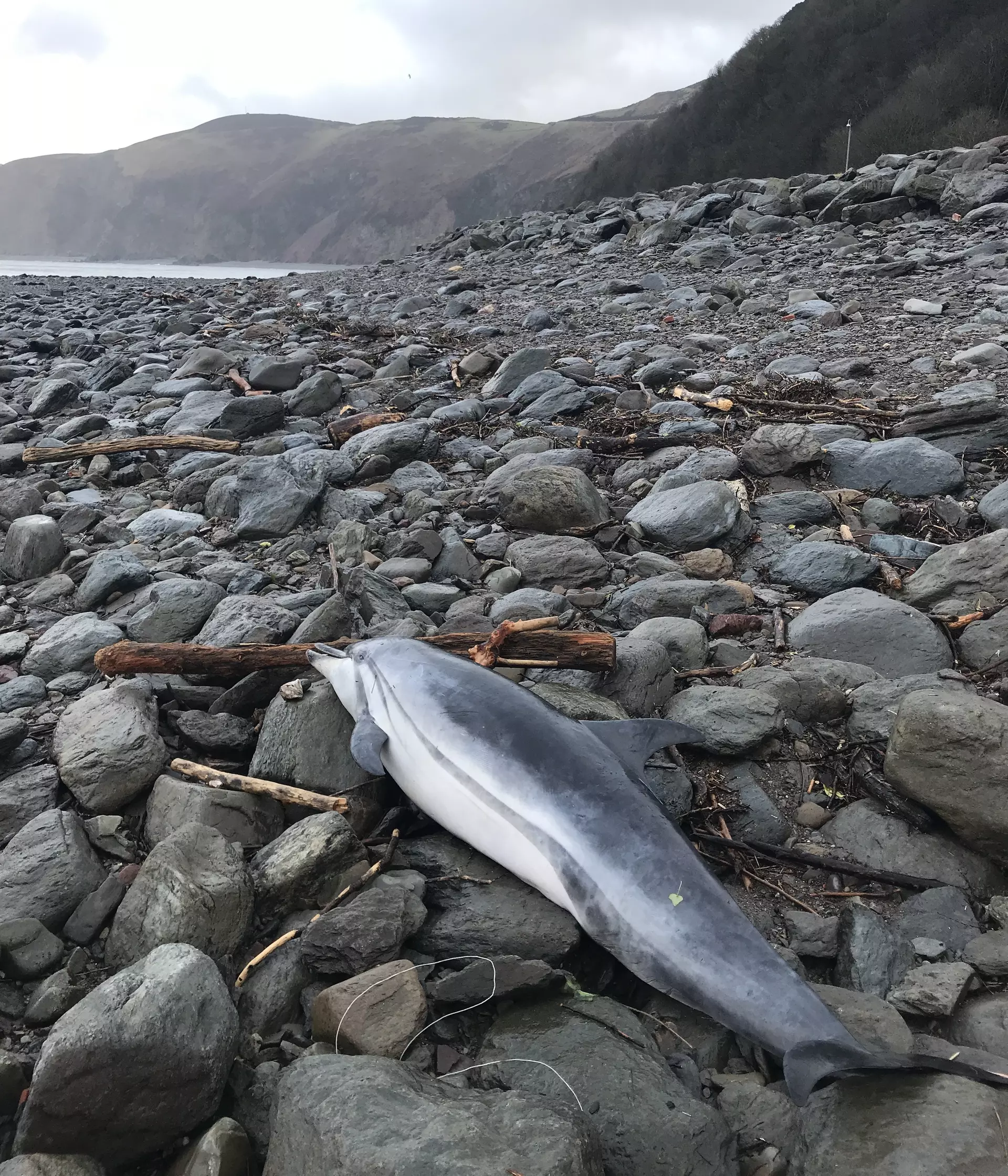
Mr. Rob Deaville
CSIP Project Manager
A dolphin is found dead stranded on a remote beach by a dog walker. Why did this event occur? How did it die?
Was the stranding natural, or was it caused by our activities? What can we usefully learn from the investigation of the stranded animal? And perhaps most importantly, what can both its life and death tell us about the state of the wider marine ecosystem and the impacts we are having upon it?
The UK Cetacean Strandings Investigation Programme (CSIP)
The UK Cetacean Strandings Investigation Programme (CSIP) was created in September 1990 to help address questions like these. The CSIP is a collaborative research programme led by the Institute of Zoology and funded by UK Government. Its remit over the last 30 years has been the investigation of the causes of strandings of cetaceans (whales, dolphins and porpoises), marine turtles, some shark species and seals around the UK coast, to learn more about the threats these species face in our waters. Over this period, CSIP partner organisations have recorded data on over 17,000 cetacean strandings and investigated more than 4,300 through systematic and forensic post-mortem examinations.

Since its inception, the CSIP has described the first mass mortality event related to bycatch (accidental capture in fishing gear) in Europe, helped discover a condition analogous to decompression sickness in cetaceans and provided the first evidence of violent and fatal interactions between bottlenose dolphins and harbour porpoises and other species of cetacean. Through its long-term collaboration with the Centre for Environment, Fisheries and Aquaculture Science (Cefas), the CSIP has also produced the world’s largest dataset on chemical pollutant exposure in cetaceans and led to a globally significant body of research on their impacts on marine species. Data from the programme has also recently revealed climate change driven shifts in distribution of some cetacean species.
As well as helping support and produce a broad variety of collaborative research, with over 270 peer reviewed publications produced since 1990, its research has helped inform management and policy decisions at a national and international level on anthropogenic pressures ranging from bycatch to chemical pollution. Although strandings research can have many inherent biases, it remains a relatively cost-effective means of investigating threats to marine fauna and generating data on the condition of the marine ecosystem.

To our partners and volunteers...
The success of the CSIP over the last 30 years has relied on the support of a vast number of members of public, volunteers and statutory, educational and voluntary institutions. Without their assistance, many of the achievements of the last 30 years wouldn’t have been possible. To each and every person that helped us out we say a heartfelt thank you, as the programme moves forward into its fourth decade of research on the threats these vulnerable species face in UK waters.
